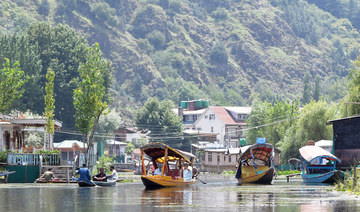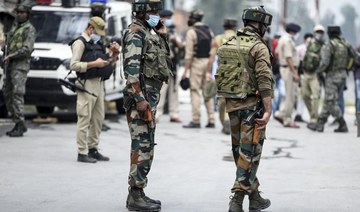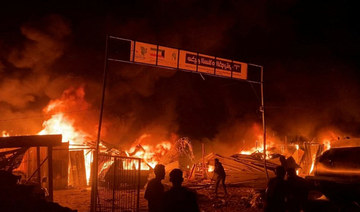RIYADH: India’s Cabinet recently approved the National Education Policy 2020 (NEP 2020), making way for large-scale reforms in the school and higher education sectors.
This is the first 21st-century education policy in India and it replaces the National Policy on Education, which dates back to 1986.
Built on the pillars of access, equity, quality, affordability, and accountability, the new policy is aligned with the 2030 Agenda for Sustainable Development and aims to transform India into a vibrant knowledge society and a global knowledge superpower. It will make school and college education more holistic, flexible, multidisciplinary and better suited to 21st-century needs, aimed at bringing out the capabilities of each student.
NEP 2020 is aimed at attaining various objectives, including the following:
Ensuring universal access to all levels of school education: The NEP 2020 emphasizes ensuring universal access to school education at all levels from pre-school to secondary. Ways of doing this include infrastructure support, innovative education centers to bring dropouts back into the mainstream, tracking students and their learning levels, facilitating pathways to learning that involve formal and non-formal education modes, associating counselors or social workers with schools, vocational courses, adult literacy and life-enrichment programs. This will ensure that approximately 20 million children who are out of school will be brought back into the mainstream under NEP 2020.
Early childhood care and education with new curricular and pedagogical structure: With an emphasis on early childhood care and education, the 10+2 structure of school curricula is to be replaced by a 5+3+3+4 curricular structure corresponding to ages 3 to 8, 8 to 11, 11-14, and 14-18. This will bring the previously overlooked age group of 3 to 6 under a school curriculum, with this having been recognized globally as the crucial stage for development of a child's mental faculties.
Reforms in school curricula and pedagogy: School curricula and pedagogy will aim for the holistic development of learners by equipping them with key 21st-century skills, a reduction in curricular content to enhance essential learning and critical thinking, and a greater focus on experiential learning. Students will have increased flexibility and choice of subjects. There will be no rigid separation between arts and sciences, between curricular and extracurricular activities, and between vocational and academic streams.
Multilingualism and the power of language: The policy emphasizes mother tongue, local language or regional language as the medium of instruction at least until Grade 5, but preferably until Grade 8 and beyond. Sanskrit will be offered at all levels of school and higher education as an option for students, including the three-language formula. Other Indian classical languages and literatures will also be available as options. Foreign languages will also be offered at the secondary level.
Assessment reforms: NEP 2020 envisages a shift from summative assessment to regular and formative assessment, which is more competency-based, promotes learning and development, and tests higher-order skills such as analysis, critical thinking, and conceptual clarity. All students will take school examinations in grades three, five and eight that will be conducted by the appropriate authority. Board exams for Grades 10 and 12 will be continued, but redesigned with holistic development as the aim.
Equitable and inclusive education: NEP 2020 aims to ensure that no child loses the opportunity to learn and excel because of birth or background. Special emphasis will be given to Socially and Economically Disadvantaged Groups (SEDGs), which include gender, socio-cultural, and geographical identities and disabilities. Children with disabilities will be enabled to participate fully in regular schooling from the foundational stage to higher education with the support of educators who have cross-disability training, resource centers, accommodation, assistive devices, appropriate technology-based tools and other support mechanisms tailored to meet their needs.
Holistic multidisciplinary education: In the higher education space, the policy envisages broad-based, multidisciplinary, holistic undergraduate education with flexible curricula, creative combinations of subjects, integration of vocational education and multiple entry and exit points with appropriate certification. Undergraduate education can be for three or four years with multiple exit options and appropriate certification within the period.
Motivated, energized and capable faculty: NEP 2020 makes recommendations for motivating, energizing, and building faculty capacity through clearly defined, independent, and transparent recruitment, the freedom to design curricula incentivising excellence, and movement into institutional leadership. Faculty failing to deliver basic norms will be held accountable.
Financial support for students: Efforts will be made to incentivize the merit of students belonging to SEDGs. The National Scholarship Portal will be expanded to support, foster, and track the progress of students receiving scholarships. Private higher education institutions will be encouraged to offer larger numbers of fellowships or scholarships to their students.
Open and distance learning: This will be expanded to play a significant role in increasing the gross enrolment ratio. Measures such as online courses and digital repositories, funding for research, improved student services, and credit-based recognition of massive open online courses will be taken to ensure they are on a par with the highest quality in-class programs.
Online education and digital education: A comprehensive set of recommendations for promoting online education because of the recent rise in epidemics and pandemics in order to ensure preparedness with alternative modes of quality education whenever and wherever traditional and in-person modes of education are not possible has been created.
Prime Minister Narendra Modi said: “The National Education Policy will lay the foundation of the new India, the 21st-century India. The National Education Policy focuses on the education and skills needed for the youth of 21st-century India. This education policy lays special emphasis on taking it to new heights, to empower Indian citizens, and to make maximum opportunities available to them.”
— Asim Anwar is Second Secretary (PIC) at the Embassy of India in Riyadh.






















